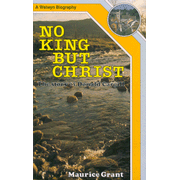We all know that worldviews (hereafter w-v) are inescapable. Worldviews rarely move beyond the intellectual dimension. Smith doesn’t want to do away with w-v talk, but to place it within a larger whole. We are not simply isolated intellects, but situated intellects--situated and embodied. We are always embodied individuals and we experience the world as being-in-the-world (per Heidegger).
And we are not Gnostics. Rather, “The Spirit marshals our embodiment in order to rehabituate us into the kingdom of God (15).”

What is imagination? Smith defines imagination as “a kind of faculty by which we navigate and make sense of our world, but in ways and on a register that flies below the radar of conscious reflection” (19). This is why using concepts like “social imaginary” or “plausibility structure” is much superior to w-v. W-v rightly highlights the inescapability of presuppositions on our thinking. We do not deny that. Smith notes, however, that social structures and our bodily being-in-the-world also function in a “pre-theoretical” (per Dooyeweerd) manner.
Knowing in the Body and By Stories
Liturgies are not only aesthetic, but kineasethic. They come to us in the body and tell a story.
Perceiving by Stories
*Who we are is shaped by the stories we encounter and imbibe. “We live into the stories we’ve absorbed; we’ve become characters in the drama that has captivated us” (32).
*narrative trains our emotions and those emotions condition our perception of the world.
*we are not disembodied choice machines.
Smith aims to capture “the creational conditions of human action” (33). This is where Anchoretism fails. Anchoretism seeks to transcend finitude and attain unto hyperousia.
*Perception and evaluation are intricately linked.
*“Affect and emotion are part of the ‘background’ I bring with me that constitutes the situation as a certain kind of situation” (35).
*“Stories are means of emotional prefocusing that shape our tacit ‘take’ on the world” (38).
*Antepredicative know--the affective register upon which narrative operates--is processed by the body below the cognitive level (Merleau-Ponty).
Pre-cognitive perception breaks down the traditional epistemology of subjects and objects. "The world is not what I think, but what I live through” (Merleau-Ponty). Our being-in-the-world is between instinct and intellect (43). We aren’t just thinking-things. “We don’t have being-in-the-world; we are being-in-the-world” (44).
More on Stories
A story has a “flow” and “rhythm” that simply isn’t reducible to a string of facts. A string of facts is not a story. It’s a memo. No one dies for a memo. No one’s embodied life is transformed by a data brief. But people do die for the Story of Matthew, for instance.
“The material meaning of a poem means uniquely because it is meant on the register of motor intentionality” (Merleau-Ponty). Kineaesthetic and Poetics are interconnected.
Worship: Story as Liturgy
Smith doesn’t add too much on Reformed liturgies. He does apply his earlier insights into how it shapes stories, drawing on scholarship on John Calvin. We can rejoice that more Evangelicals are moving away from “3 songs and a lecture, 3 points and a poem.” People don’t die for that, either. So, good stuff here.
We live at the nexus of story and body--a “between” space where the aesthetic power of a story captures our imagination because it resonates with our body. And all good liturgies tell an implicit story. The Holy spirit reconfigures our neural maps.
Liturgy is a shorthand term for those rituals that are loaded with a Story about who and what we are (139). It is an imaginative social practice that captures our imaginations by becoming the stories we tell ourselves in order to live.
Criticisms:
Smith admits he has a hard task: steer a middle course between popular literature and the scholar. He kind of succeeds. His thesis is fascinating and I believe (literally) life-transforming. Still, one gets the feeling he is often “Dancing on the edge” rather than “diving in for the kill shot.” As a result, a lot of sections seemed to “go on” in a way that repeated earlier chapters.

